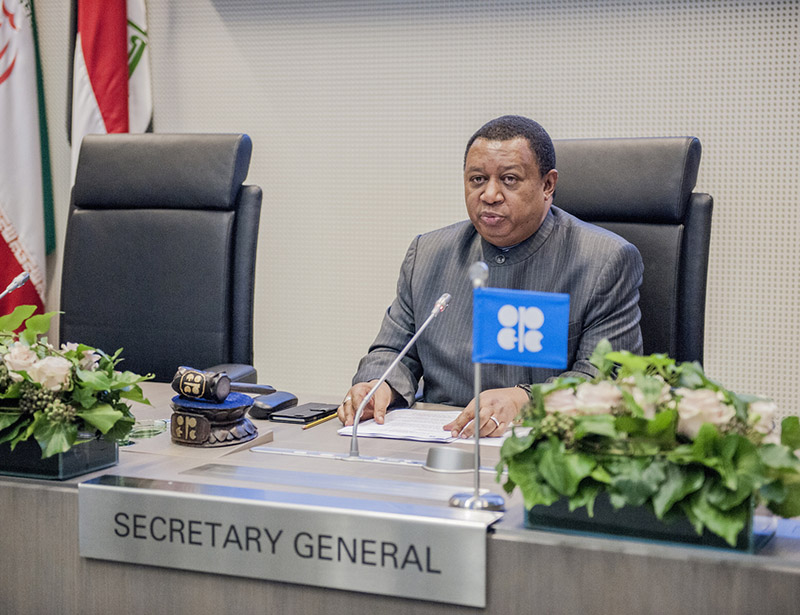(Bloomberg) -- OPEC’s chief warned of prolonged instability in the oil market if the producer group and other major crude suppliers fail to act jointly to limit output and curb a global glut.
An inability of the Organization of Petroleum Exporting Countries to implement the deal it reached in Algiers in September will have “negative consequences on the already fragile state of the industry,” OPEC Secretary-General Mohammed Barkindo said Tuesday at a briefing in Abu Dhabi. Markets are “eagerly awaiting” combined action by OPEC and non-OPEC producers, he said.
“Failure to jointly act with our non-OPEC colleagues and friends in accordance with the Algiers accord will further elongate this period of very low growth, this period of instability in the market, and will put forward, further, the re-balancing process,” Barkindo said, adding that he didn’t wish to sound “like a prophet of doom.”
The Algiers agreement helped push oil prices to a 15-month high above $50 a barrel, but crude has subsequently fallen as several OPEC states disputed production estimates that would determine the size of cuts required of the group’s individual members. OPEC wants to put the changes into effect when it meets in Vienna on Nov. 30.
Vienna Talks
The group’s internal disagreements have so far prevented a deal to secure cooperation from major non-OPEC suppliers such as Russia after rounds of talks in Vienna. The producers will meet again in the Austrian capital later this month. OPEC, which pumps about 40% of the world’s oil, is trying to persuade suppliers from outside the group to join the cuts. The 14-member group has held talks in the past weeks with producer nations including Russia, Azerbaijan, Brazil, Kazakhstan and Mexico.
The goal of the Algiers agreement is to “trigger an accelerated draw-down” of oil inventories built up amid oversupply, Barkindo said. OPEC is confident that its decision to limit the group’s collective output to a range of 32.5 million and 33 million barrels a day will reduce inventories and bring forward a balancing of the crude market, he said.
Brent crude, a global benchmark, has dropped by more than half from its high in 2014 of more than $115 a barrel. Brent futures fell in each of the last three weeks, and the contract was 0.5 percent lower at $45.91 a barrel in London on Tuesday at 12:41 p.m. local time.
“Every country has a significant interest to increase the oil price,” Indonesian Vice Minister of Energy and Mineral Resources Arcandra Tahar said in an interview in Abu Dhabi. “We hope for oil price to stay above $50.”
Barkindo said the current oil-price cycle is “probably the most severe” that OPEC has ever faced and that the market has taken a long time to re-balance. “But I remain confident that the message has sunk in, the consequences are clear, and the experience of the past two years or so has been noted and learned.”
Bloomberg News by Anthony DiPaola, Mahmoud Habboush and Sam Wilkin





